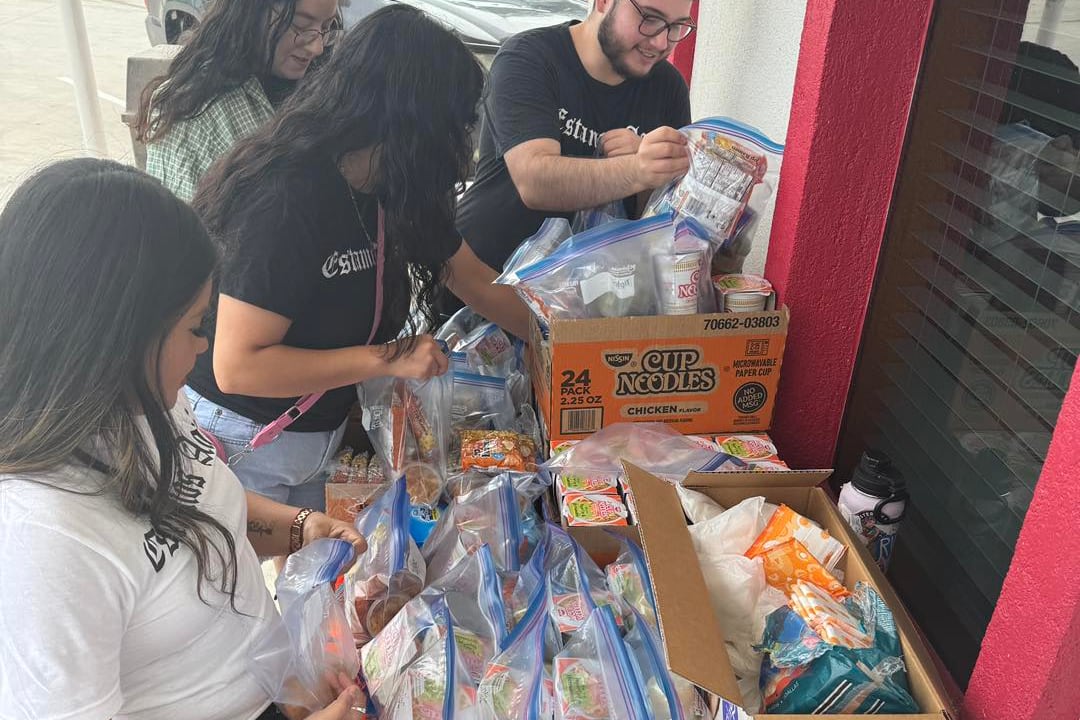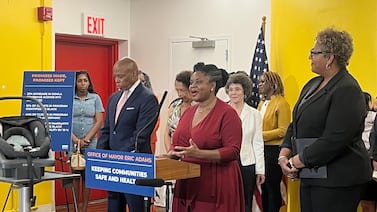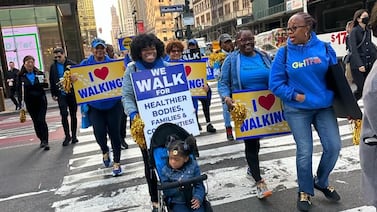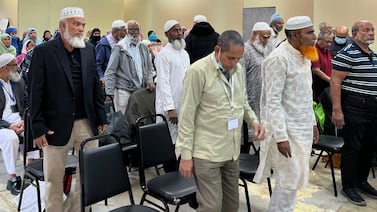Public health, explained: Sign up to receive Healthbeat’s free Atlanta newsletter here.
Atlanta public health advocates expressed concern Wednesday about what Donald Trump’s return to the White House may bring, but they expect to rely on their long experience navigating Georgia’s Republican-controlled politics with coalition building and bipartisan lobbying in the next four years.
Community groups and public health leaders told Healthbeat they fear funding and service cuts, crackdowns on vulnerable groups like immigrants, the politicization of health institutions, and the spread of health misinformation.
Trump’s first term as president and recent policy statements indicate he may move to undermine key public health institutions.
He has proposed cutting funding to the Centers for Disease Control and Prevention and embraced an alliance with Robert F. Kennedy Jr., who opposes vaccines.
“There are legitimate fears about the potential impact on public health funding, globally, nationally, and locally for essential public health services and the potential undermining of critical public health science,” said Dr. Harry Heiman, professor of public health at Georgia State University.
Leaders of local groups working on public health issues agree.
“There is a lot of campaign rhetoric that is giving many people very legitimate cause or concern, but it will take some time for us to really see what exactly will transpire, both in terms of the short term and the long term,” said Jeff Graham, executive director of Georgia Equality, an LGBTQ+ advocacy organization.
Public health advocates said they plan to hold to their longstanding strategies of working together and using bipartisan advocacy to gain policy wins.
“Organizations that work in the South have built up a bit more resilience to work within challenging political landscapes,” said Will Ramirez, director of public policy and advocacy at the Southern AIDS Coalition.
“There’s muscle memory about being able to work across the aisle to folks and reaching out to folks that normally would not align with your ideology, but still, you understand that you need their help to get across the finish line,” he said.
Groups put new emphasis on solidarity
Dázon Dixon Diallo, founder and president of Atlanta’s SisterLove, which focuses on HIV and reproductive justice, said there’s still “potential to do great work, because we’re doing so in the face of adversity.”
“There’s also a new emphasis around building solidarity … and building a new coalition,” Diallo said. “We’re just going to have to do it without someone in the White House to help.”
She said organizations working in the South have learned how to “be here more for each other and … how to do more with less” than those working in environments with more political support.
Still, she doesn’t want to seem naive about the challenges she anticipates: “It’s going to be … harder, and it’s already been hard.”
Gilda Pedraza, founder and executive director of the Latino Community Fund Georgia, said she worries about immigrants’ access to healthcare under Trump, but also deportations that could force people to separate from their children.
Concerns about funding cuts are also very real, Ramirez said.
“There is no doubt that they will continue to push on the federal level to make these draconian cuts” to HIV programs, Ramirez said, citing a recent Republican proposal to cut the sole federal funding program for housing for people living with HIV, the Housing Opportunities for Persons with AIDS program.
About two-thirds of the CDC’s budget goes to state and local governments, said Jill Rosenthal, director of public health policy at the Center for American Progress.
“Shrinking the CDC has a great impact on state and local health departments and, as a result, on the health of our communities,” she said, citing programs that provide vaccines, respond to disease outbreaks, help people quit smoking, or screen for cancer.
About half of the Georgia Department of Public Health’s funding comes from federal sources, said Leah Chan, director of health justice at the Georgia Budget and Policy Institute.
Cuts would mean “fewer Georgians getting access to what they need to thrive.” She cited potential federal cuts to funding for tracking opioid overdoses and treating people with HIV as specific concerns.
Help for substance abuse ‘transcends partisan politics’
Others are less worried about changes from the next Trump administration. Jeff Breedlove, strategic policy adviser for the Georgia Council for Recovery, said there were federal efforts to address substance use disorder during the Trump and Joe Biden presidencies.
“It’s one of the few issues that transcends partisan politics,” he said.
Breedlove, who served on the staff of local and national Republican politicians, is in long-term addiction recovery. He said he wants Trump and the 119th U.S. Congress to work to further destigmatize substance use disorder, increase funding for addiction response resources, and partner with local groups to hold recovery events.
“I hope and pray that they will see the need to increase the funding,” he said. “Because the science of the disease demands that we do so.”
Others worry that key health institutions could be politicized and the public health workforce would suffer.
Changes to the way people are appointed to agencies like the National Institutes of Health could result in changes to research agendas and grant making.
Although SisterLove is not heavily dependent on federal grants, many of its partner organizations are; funding cuts could impact the work the groups do together, Diallo said.
Misinformation is another concern.
“We know that Trump plans to give a lot of authority to RFK Jr., who has made comments about rolling back public health protections, including removing fluoridation for water, impeding access to trials for vaccination, and strategies that have a proven track record of improving health and life expectancy in the United States,” Rosenthal said.
Amy Sharma, executive director of nonprofit Science for Georgia, said her organization plans to increase its commitment to “take science back from polarization and politicization.”
“We remain committed to ensuring that science, facts, and evidence have a seat at the decision-making table,” Sharma said. “We look forward to continuing to speak truth to alternate facts, conspiracies, and gross overgeneralizations so that all Georgians are equipped to create a brighter future.”
Atlantans, we want to hear from you. Have thoughts, concerns, or questions on how Trump’s presidency could impact public health in your city? Submit to our reader survey.
Rebecca Grapevine and Allen Siegler are reporters covering public health in Atlanta for Healthbeat. Contact Rebecca at rgrapevine@healthbeat.org. Contact Allen at asiegler@healthbeat.org.







